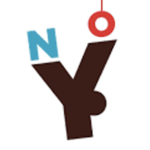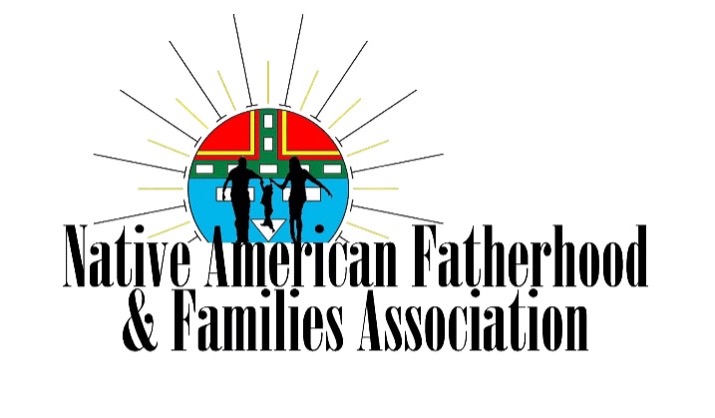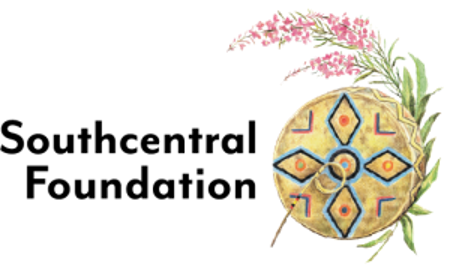Culturally-Tailored Practice
Alaska Blanket Exercise

(From the Alaska Native Tribal Health Consortium Website)
The Alaska Blanket Exercise program is a participatory history lesson – developed in collaboration with Alaska Native Elders, knowledge keepers and educators – that fosters truth, understanding, respect, and reconciliation among Indigenous and non-indigenous peoples.
Through an experiential learning activity, participants will walk on blankets representing the land and into the role of Alaska Native people by reading scrolls and carrying cards which ultimately determine their outcome as they literally ‘walk’ through situations that include pre-contact, colonization and resistance. This exercise was adapted from a best practice exercise use by indigenous people in Canada.
Learning Objectives
- Participants will gain knowledge and understanding of Alaska Native history, since time immemorial.
- Participants will develop an understanding of the impacts of intergenerational trauma on Alaska Native people.
- Participants will develop an awareness of and gain an understanding of what they can do in their own lives and communities to break cycles of intergenerational trauma. To attend an in-person lesson, contact Alaska Native Tribal Health Consortium at [email protected].
Alaska Center for Resource Families hosts Alaska Blanket Exercise lessons for foster and adoptive families. Go here to view their training calendar.
UAA’s Family Services Training Center hosts Alaska Blanket Exercise lessons for behavioral health providers who are billing Medicaid. Find their training calendar here,
Family Spirit


(From The John Hopkins Center for Indigenous Health)
The Family Spirit Program is an evidence-based and culturally tailored home visiting intervention delivered by Native American paraprofessionals as an Indigenous solution to supporting caregivers during pregnancy and early childhood. Caregivers gain knowledge and skills to achieve optimum development for their children across the domains of physical, cognitive, social-emotional, language learning, and self-help.
The Family Spirit Core Curriculum consists of 63 lessons taught from pregnancy to age 3. Additional curriculum modules address emerging needs and specific family circumstances. This in-home parent training and support program has been designed, implemented, and rigorously evaluated by the Johns Hopkins Center for Indigenous Health (CIH) in partnership with the Navajo, White Mountain Apache, and San Carlos Apache tribal communities since 1995. It is now replicated nationally, with training, technical assistance and curriculum materials managed by Johns Hopkins CIH. If you would like to reach John Hopkins Center for Indigenous Health about the model contact [email protected].
In Alaska, South Central Foundation is beginning the process of implementing the model. If you are interested in learning more about their program, contact Cassie Stenehjem or Marisa Wang.
CALRICARAQ


From (Harvard Kennedy School Project on Indigenous Governance and Development)
The Yukon Kuskokwim Health Corporation established the Calricaraq program as its behavioral health prevention service in 2011. Calricaraq is a Yup’ik word that conveys the idea of living a balanced life through adherence to a set of ancestral principles. The program’s foundational idea is that traditional knowledge can guide individuals and communities as they deal with trauma and seek healing. The Calricaraq Elder’s Council, consisting of more than 40 elders from throughout the delta region, provides leadership and advice on the program’s activities. Service provision begins when a tribe’s leaders formally invite behavioral health prevention staff to visit a village and share Calricaraq. Staff members work with village elders and other community leaders to facilitate awareness of ancestral knowledge. This outreach prepares the ground for the flagship Calricaraq activity, a three-day community gathering that follows a set format. The first day explores the concept of historical trauma, the second day is devoted to discussing hurtful behavior and abuse, and the third day offers Yup’ik teachings about the path to wellness and healthy living. Individuals with a “heavy heart” or a “heavy mind” are encouraged to speak openly about their suffering and accept that others are present to give unconditional love and support. In accordance with Yup’ik teachings, individuals are reminded that every person has a contribution to make to the community at each stage of his or her life. In the words of one staff member, “Calricaraq assures Alaska Natives that their value is in who they are, not what they have.” In addition to three-day gatherings, the Calricaraq program offers a range of community services on an as-needed basis. These include tribal council orientations, talking circles, skillbuilding workshops, healing ceremonies, school presentations, and crisis intervention. The program also offers “train the trainers” workshops that teach community members to facilitate Calricaraq within their own villages. Working with the Elders’ Council, behavioral health prevention employees have developed two curriculum manuals to guide community activities. Community members use these tools to lead talking circles and workshops with their elders and to adapt Calricaraq activities for use in local schools, churches, health clinics, and tribal child welfare and justice programs.
Calricaraq has dramatically changed the Yukon Kuskokwim Health Corporation’s approach to behavioral health. Although western-based providers and treatments are still available, the Calricaraq program has become the health organization’s most requested intervention service. In the Calricaraq program’s first four years, staff members were invited to over 30 communities, and they hosted 10-15 community gatherings annually. Because of the high demand for services, the department has grown rapidly, from three to fifteen fulltime staff members. Three communities have requested their own village-based Calricaraq provider. Most important, Calricaraq teachings have helped numerous individuals and communities turn their lives around by finding balance and wellbeing in Yup’ik teachings. As one program participant put it, Calricaraq helped him live “the good ways our elders taught us, living life to the fullest. Beginning with me first. Working on myself first. Healing myself from the past.” A PHILOSOPHY FOR HEALING
Through its Calricaraq program, the Yukon Kuskokwim Health Corporation has taken a stand on the importance of incorporating ancient knowledge in medical care for Alaska Natives. Yet because it is a holistic reintroduction of the Yup’ik philosophy of life, it is difficult to assess the impact of the Calricaraq program in the narrow, evidence-based terms of Western medicine. Even so, during its short existence, the program appears to have achieved significantly better outcomes than other piecemeal medical interventions. One program staff member notes, “We have seen people stop drinking, substance abusing, and abusing others almost instantly after gatherings. Some take more time to internalize what they learn, but many participants equate Calricaraq to a life changing experience because it changes the way people see their world.” The teachings reconnect participants to their Native identity in order to counter the harms caused by the imposition of non-Yup’ik worldviews. Calricaraq aims to address the unhealthy behavior passed on through the generations by treating its underlying causes, including the loss of Yup’ik culture, language, identity, spirituality, parenting skills, autonomy, and self-control. Through the stories that are shared in gatherings, talking circles, and workshops, individuals learn where they came from, who they are, and the values that will guide them to a long and healthy life. Another reason Calricaraq has a powerful effect on behavior is because it is community-driven.
The Yukon Kuskokwin Health Corporation provides programming only if a tribe makes a formal request and is actively engaged in the process. Each village adapts Calricaraq to its own traditions, and its elders serve as facilitators and teachers. In the words of a program staff member, “The Calricaraq program teaches our people that their elders are their experts, and these elders and other knowledgeable tribal leaders have the solutions to their tribe’s issues, all within their community.” In all of its activities, Calricaraq respects tribal sovereignty while building community capacity and confidence to address pressing social problems with local resources and local knowledge. Guidance comes from the ancient wisdom transmitted by village elders, so tribes control their own healing rather than depending on federal or state programs. In three villages, this focus also is reflected in innovative staffing arrangements, in which tribes supervise community-based Calricaraq providers, but the Yukon Kuskokwim Health Corporation pays their salaries.
Finally, Calricaraq is distinctive because it addresses mental and behavioral issues by involving the entire village. Rather than treating an individual’s symptoms one-on-one, in isolation with a provider, Calricaraq ensures that healing takes place in a group. A visiting medical professional has little knowledge of the relationships in the community, and writing a prescription does little to restore balance. The Calricaraq program reestablishes the leadership role of elders, families, and the community in supporting individuals as they go through challenging times. In the village of Alakanuk, for example, several troubled teens were acting out and destroying property. A Calricaraq talking circle brought them together with their parents, police, elders, and community leaders. As a result, rather than being sent away for treatment, the youth were more deeply integrated into tribal life and ceased their harmful behavior. Calricaraq continuously emphasizes the message that each tribal citizen has a specific and valuable contribution to make to the community. This encourages individuals to take care of themselves so they can live in harmony with others. Participants are becoming better sons, daughters, fathers, mothers – and better tribal citizens.
The Calricaraq program of the Yukon Kuskokwim Health Corporation is restoring the health of individuals and communities through traditional teachings. By reinforcing culturally appropriate ways of being, Calricaraq successfully provides preventative care where non-Indigenous approaches have failed. The journey to overcome generations of historical trauma is challenging and long, but the revival of traditional lifeways in the Yukon Kuskokwim delta region brings new optimism. Find out more by contacting YKHC.
Juneau Native Youth Olympics (Traditional Games)

From (Seaalaska Heritage)
Native Youth Olympics (NYO) (also known as Traditional Games) is based on the hunting and survival skills of the Indigenous peoples of Alaska and across the Arctic going back thousands of years. Each athlete strives to perform at their personal best while helping and supporting their fellow competitors, no matter which team they are a part of. This is the spirit of the games: to work together toward common goals and learn from the skills and values that allowed Alaska Native peoples to survive and thrive in the harshest conditions. Learn more at https://traditionalgames.sealaskaheritage.org/.
Native Youth Olympics Alaska

From (Cook Inlet Tribal Council NYO)
The first Native Youth Olympics (NYO) were held in the winter of 1971 and were conceived and organized by students attending the Boarding Home Program School in Anchorage, Alaska. In the first year of competition, 12 schools participated, with student athletes traveling from Sitka and Nome. Since then, the number of athletes and enthusiasm surrounding the Games have increased as NYO Games Alaska received state and national recognition.
Our Alaska Native ancestors developed traditional contests to develop abilities crucial to everyday life. Competition with one another honed the abilities needed to successfully hunt and fish for daily survival in the traditional way of life. The creators of the NYO Games wanted to demonstrate these skills and preserve the traditional contests and culture of their forefathers. This vision has been realized and is now witnessed by people worldwide thanks to the involvement of many dedicated student athletes, coaches, volunteers, and the support of generous corporate sponsors and individual donors.
When our ancestors had successful hunting or fishing trips, they would return to their village to share how and where they succeeded. Survival depended on their willingness to help each other. Today, athletes competing in NYO carry on the tradition of sharing their knowledge with teammates and others. In an event more about achieving a personal best more than beating the competition, the Native Games are the only sporting event in the world where competing athletes help each other to be successful in the Games and in life.
VISION
We believe in healthy lifestyles for young people reflected in the traditional contests of Native sports.
PURPOSE
The purpose of the NYO Games is to promote:
• Healthy lifestyles, positive self-esteem, and leadership skills
• Appreciation of Alaska Native traditions
• Good sportsmanship through friendly athletic competition
• Cross-cultural understanding
Find out more at https://nyogames.com/nyo-games/.
Fatherhood is Sacred & Motherhood is Sacred

From (Tlingit & Haida Community & Behavioral Health Services Healing Center)
Fatherhood is Sacred (for Fathers in all communities)
PARENTING CLASS: Fatherhood is Scared is a 12-week program for fathers, grandfathers, uncles or whomever is the primary caretaker of a Native child(ren). The curriculum focuses on the sacredness of being a father and the importance of Alaska Native values, by approaching fatherhood from a culturally responsive viewpoint.
Motherhood is Sacred (for Mothers in all communities)
PARENTING CLASS: Motherhood Is Sacred is a 12-week program for mothers, grandmothers, aunties or whomever is the primary caretaker of a Native child(ren). The curriculum focuses on the sacredness of being a mother and the importance of Alaska Native values, by approaching motherhood from a culturally responsive viewpoint.
Contact Tlingit & Haida at (907) 463-7305 or send them an email to [email protected] or Southeast Alaska Regional Health Consortium at https://searhc.org/fatherhood-sacred-juneau/.
The New Generations Project

From (Southcentral Foundation)
Southcentral Foundation’s New Generations Project was previously known as Indigenous Project LAUNCH (Linking Actions for Unmet Needs in Children’s Health). The purpose of The New Generations Project is to promote the wellness of young Alaska Native and American Indian children, from birth to 8 years old, by supporting the physical, social, emotional, cognitive, and behavioral aspects of development. The long-term goal of New Generations is to ensure all children enter school ready to learn and able to succeed.
New Generations is funded by a five-year federal grant provided by the Substance Abuse and Mental Health Services Administration (SAMHSA), which is currently in its second year. During the first year, SCF completed a community assessment which assisted in the creation of our strategic plan for the following years of the grant.
To increase understanding of the goal, SCF renamed the project The New Generations Project after the first year to support the aim: Alaska Native families will increase their physical, mental, emotional and spiritual wellness by optimizing the effectiveness of services that support families in the preparation for and care of new generations. The aim will be accomplished by inventorying current work, learning from internal and external best practices, engaging SCF and community stakeholders, and creating a coordinated, system approach to be deployed by December 2023.
The New Generations Project also seeks to improve coordination across child-serving systems, building infrastructure, and increasing access to high-quality prevention and wellness promotion services for children and their families. To this end, we have established working relationships with many programs and services available in the Anchorage area.
Learn more at https://www.southcentralfoundation.com/services/primary-care-clinics/new-generations-project/.
